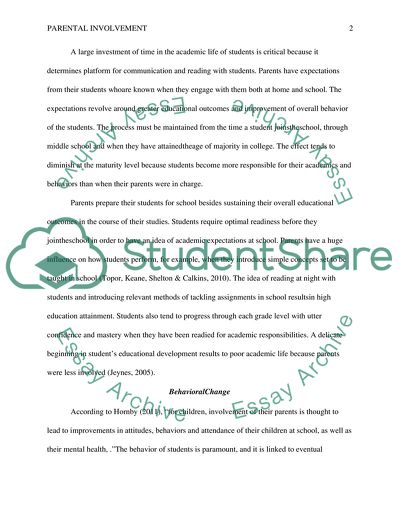Cite this document
(“The Effect of Parental Involvement in Academic and Behavioral Success Research Paper”, n.d.)
The Effect of Parental Involvement in Academic and Behavioral Success Research Paper. Retrieved from https://studentshare.org/education/1675528-the-effect-of-parental-involvement-in-academic-and-behavioral-success-of-students
The Effect of Parental Involvement in Academic and Behavioral Success Research Paper. Retrieved from https://studentshare.org/education/1675528-the-effect-of-parental-involvement-in-academic-and-behavioral-success-of-students
(The Effect of Parental Involvement in Academic and Behavioral Success Research Paper)
The Effect of Parental Involvement in Academic and Behavioral Success Research Paper. https://studentshare.org/education/1675528-the-effect-of-parental-involvement-in-academic-and-behavioral-success-of-students.
The Effect of Parental Involvement in Academic and Behavioral Success Research Paper. https://studentshare.org/education/1675528-the-effect-of-parental-involvement-in-academic-and-behavioral-success-of-students.
“The Effect of Parental Involvement in Academic and Behavioral Success Research Paper”, n.d. https://studentshare.org/education/1675528-the-effect-of-parental-involvement-in-academic-and-behavioral-success-of-students.


